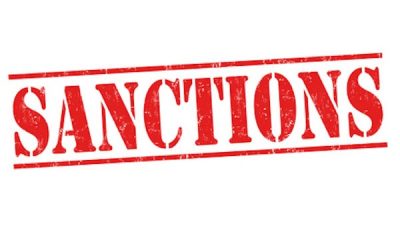Sanctions are Revenge. Sanctions Are Genocide!

All Global Research articles can be read in 51 languages by activating the “Translate Website” drop down menu on the top banner of our home page (Desktop version).
To receive Global Research’s Daily Newsletter (selected articles), click here.
Visit and follow us on Instagram at @globalresearch_crg and Twitter at @crglobalization.
***
We citizens run the risk of accepting economic and social sanctions imposed on a country and/or its president as “normal” and “understandable” because they have been very popular for years and not a single shot is fired, not a missile is detonated and not a tank is set in motion. Information about their consequences is rarely given.
But sanctions are not an alternative to war, they are war – only by other means. They are invisible wars and perfect instruments of revenge. If we get used to accepting such things, there is nothing more we will not accept.
“The UN Sanctions Regime in Iraq.”
This is the subtitle of the book published in 2005 by Hans-C. Graf Sponeck: “Another War” (1). Hans von Sponeck was the UN coordinator in charge of the “Oil for Food” programme in Iraq from 1998 to 2000. In his book, he uses figures to prove the fatal consequences and the failure of the UN Security Council in its Iraq policy: increase in child mortality and illiteracy, inadequate food supply and non-functioning of important parts of the infrastructure.
In early 2000, von Sponeck resigned as head of the UN aid programme in protest against the genocidal Sanctions Regime. A short time later, I met him personally on a lecture tour in Switzerland and told him that as a German I was very proud when I learned of his honourable resignation. A long friendship developed with this humanly admirable German diplomat.
A completely different experience was the hair-raising answer of former US Secretary of State Madeleine Albright to a journalist’s question: on the TV show “60 Minutes” on 12 May 1996, Lesley Stahl asked the US Secretary of State:
“We’ve heard that half a million children have died (because of the sanctions on Iraq). I mean, that’s more children than died in Hiroshima. And – tell me, is it worth the price?”.
Albright replied:
“I think it’s a very difficult decision, but the price – we think it’s worth the price.” (2)
Sanctions as the perfect instrument of revenge (3)
The years of sanctions against the Iraqi civilian population have inflicted serious economic, social and psychological wounds. The dramatic impoverishment of the population and the social and economic decline of the country were, according to experts, unprecedented in the history of the modern world (4). Desperate need and hopelessness kept the population in suspense and robbed them of the strength to rebel. Only the civilian population was affected by the sanctions. The regime of the then President Saddam Hussein got off scot-free. How are we to evaluate such a political punitive measure?
The sanctions against Iraq are only one example among many: The punitive measures against the former Federal Republic of Yugoslavia in the 1990s and the more recent ones against Venezuela, North Korea, Yemen or Syria are equally well remembered. In this context, it should be pointed out that the paralysis and partial destruction of state institutions opens the door to organised crime, i.e. it greatly promotes the rapid emergence of mafia structures and machinations.
Soon it will become clear what economic, social and psychological wounds the sanctions taken by the Western world under the leadership of the USA will inflict on the civilian population of Russia and to what extent the Russian president’s position of power will be shaken as a result? Venezuelan President Nicolas Maduro – once himself a “victim” of US sanctions – strongly condemned the Western sanctions. In a newspaper article on 3 March, he described the punitive measures, including in the banking sector, as crimes against the Russian people and pleaded for diplomatic ways out of the crisis (5).
It is not yet clear what fatal effects the sanctions will have on the daily lives of the sanctioning countries: Experts are already warning of higher inflation rates, energy shortages and bottlenecks in the production and distribution of food.
*
Note to readers: Please click the share buttons above or below. Follow us on Instagram, @globalresearch_crg and Twitter at @crglobalization. Forward this article to your email lists. Crosspost on your blog site, internet forums, etc.
Dr. Rudolf Hänsel is a retired rector, educationalist and graduate psychologist. He is a regular contributor to Global Research.
Notes
(1) Graf Sponeck, Hans C. (2005). Another war. The UN sanctions regime in Iraq. Hamburg
(2) https://www.heise.de/forum/Telepolis/Kommentare/Der-US-Putschvers…ter-irakischer-Kinder-sind-den-Preis-wert/posting-34033445/show/
(3) https://monde-diplomatique.de/artikel/!386433
(4) https://www.tagesspiegel.de/politik/10-jahre-sanktionen-gegen-irak-wenn-ich-denke-werde-ich-verrueckt/156928.html
(5) https://de.rt.com/amerika/133072-venezuelas-prasident-nicolas-maduro-bezeichnet-sanktionen-als-verbrechen/

